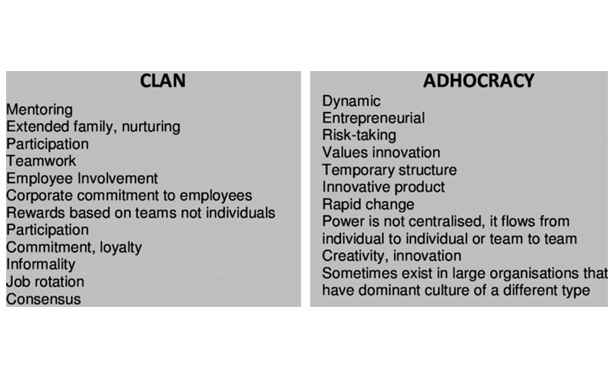‘Individual commitment to a group effort – that is what makes a team work, a company work, a society work, a civilization work’, Vince Lombardi. It is a combination of various individual initiatives that perfect a team’s goal. Connecting the dots by utilizing leverage of individual brilliance is what keeps an organisation relevant. Operational efficiency is to a great extent improved by less micro-management. It is even true that micro-management often atimes causes tensions and frustrations in the working environments. I am not in anywhere suggesting that there exists a particular form of management system that would suit all types of organizations. I am merely advocating for a less bureaucratic management system in the public learning institutions.
‘Adhocracy is a form of business management that emphasizes individual initiative and self-organization in order to accomplish tasks’, Investopedia. This is in contrast to bureaucracy which relies on a set of defined rules and set hierarchy in accomplishing organizational goals. Most public institutions have established processes and standards that are designed to ensure compliance. These standards and processes have many steps leading to slowness in execution of missions. Of course, there are several reasons why bureaucracy has survived the test of times. In the case where an organization is defined by a huge human capital like in public service institutions, hierarchy is important as it helps in keeping order. By dividing responsibilities formally and standardising procedures, there is bound to be some level of predictability. This is also common in non-profit making organisations. All these are characteristics of a bureaucratic systems.
We are now in an era where ‘Intelligence Quotient’ is not the sole predictor of business success. It is not very much about abstract understanding and applications. Business success has more to do with building relationships. It is about bringing out the best in people so that they can innovatively contribute to a group effort. Positively influencing individual members so that they can be motivated to nippily adapt to the new callings in an organization, is the primary purpose of every manager today. Public learning institutions are characterised by many workers. Hence the reason why a bureaucratic system remains in such environments. By this, opportunities get missed in the process. For example, when trying to lure stakeholders to partner with a public organization, the necessary steps required for such deals to take place can somethings take a long time to the detriment of the very deal. At times the communication channels in a bureaucratic organization is the reason why top management and the rest of the staff seem to be pulling in different directions. Top-to-bottom kind of decision making is rendering a 21st century worker a bit redundant. This in my view is what is dwindling the quality service in public learning institutions.
When there is a diminishing return in results, there is need for a change in strategy. We ought to consider applying some characteristics of adhocracy. A flexible, adaptable and informal form of management. According to Robert H. Waterman, adhocracy cuts across normal bureaucratic lines to capture opportunities, solve problems and get results. This would mean that organizations would have little formalization of behaviour, mutual adjustments within and between teams, decentralize and adopt some form of flat organizational structure. Transforming a highly hierarchical organization into a flat organization would improve work relations. Improved relations improve teamwork. It is those improved relations that draw individual staff members to go extra miles in order to contribute significantly to the groups effort. One major way of improving the quality of service within public institutions is through mending work relations. Through adhocracy, improved work relations are almost a guarantee. So much can be accomplished within a short period, and most importantly, all staff members would feel the sense of belonging and contribute innovatively to the whole group as a result.
Ignatious Njobvu
